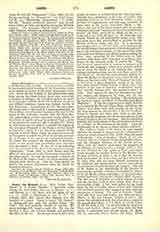

James Primadicci (or PRIMADIZZI), h. at Bologna; d. in the same city in 1460. As early as the year 1426 he was known to his brethren of the Franciscan Order as an ardent promoter of the strict observance of the rule. When in 1431 Eugene IV had given orders that from among the Observantine friars then assembled in chapter at Bologna, the six ablest men be set apart to be engaged exclusively by the Holy See on grave and difficult missions, James was deemed worthy of this distinction. Accordingly, in 1437, the same pontiff placed him at the head of a legation consisting of Friars Minor, commissioned to prepare the way for the union of the Armenian Church with the Holy See. The undertaking proved successful owing chiefly to the efforts of James, as may be gathered from a letter of the Imperial Council at Caffa to Eugene IV. Hence in 1439 James was privileged to present the legates of the Armenian Patriarch to the Fathers of the Council at Florence. Again, in 1444, his name appears on the long list of Friars Minor whom the pope had sent out as his nuncios to solicit the aid of the princes and people of Europe in the matter of a projected crusade. To James was assigned the Exarchate of Ravenna. Later on, his power and jurisdiction were extended over the whole of Italy. At the end of the following year he journeyed to the East in the capacity of papal commissary. From 1446 to 1449 James held the office of vicar general of the Cismontane branches of the Observance. In 1447 he convened a chapter at St. Mary of the Angels (Assisi), on which occasion new statutes were drawn up. God has been pleased to glorify the zealous Franciscan since his death by numerous miracles.
THOMAS PLASSMANN

